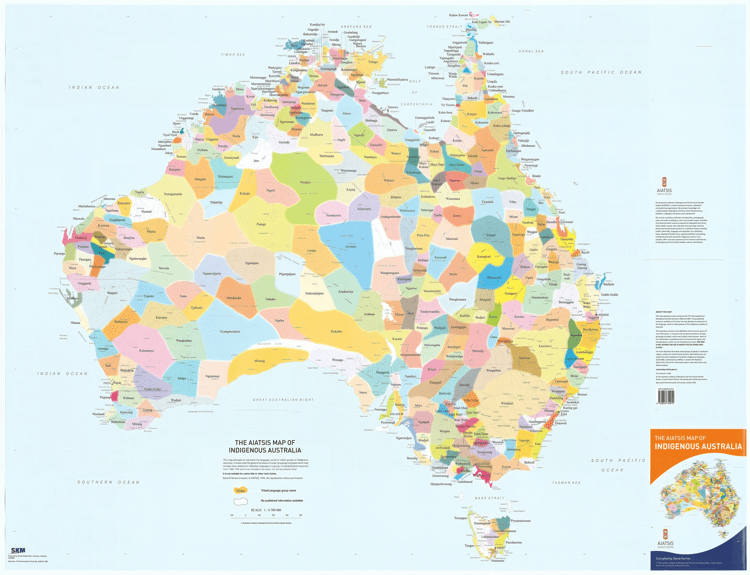
Indigenous cultural protocols but most people are only familiar with that surrounding land, which in Aboriginal or Torres Strait English is simply referred to as ‘country’. Country is significant because people’s cultural identity is tied to the land i.e. to a specific location or identifiable tribal boundary. This is evident from the Indigenous Map of Australia published by the Australian Institute of Aboriginal and Torres Strait Islander Studies (AIATSIS) showing the many Indigenous nations.
However, although most people are familiar with the Welcome to Country and Acknowledgement of Country, few understand the important distinction between the two. In our Indigenous cultural awareness training we not only explain the difference but build participants confidence in doing the latter i.e. acknowledgement and then answer any questions they may have.
Welcome to Country
The ‘Welcome to Country’ can only be made by traditional owners of the land on which a gathering is held and is invariably performed by an Elder or their delegate. Not being aware of this cultural requirement has resulted in some gudia organisations committing a faux pas inadvertently by asking the wrong person to give a welcome. This cultural mistake places a lot of unnecessary pressure, especially on Indigenous employees, who are not from that country.
Acknowledgement of Country
The ‘Acknowledgement of Country’ on the other hand can be performed by anyone regardless of whether they are Indigenous or not. This provides a perfect opportunity for non-Indigenous people to participate in our culture.
In a recent training session, however, I was asked by one of the participants why they couldn’t do a ‘Welcome to Country’? After all, they said, ‘this is my country too’ (meaning Australia).
The question shows that the participant clearly misunderstood the Indigenous use of the word ‘country’ to refer to their tribal lands only and not to Australia per se. For an Indigenous person to give a welcome to everyone in this broader context would be inappropriate at the least or else a serious cultural transgression because it is effectively speaking for someone else’s country.
Secondly, he missed the point about the ‘Welcome to Country’ being an Indigenous cultural protocol.
There is nothing wrong with gudia people welcoming visitors to Australia but there is in welcoming them to, say, Noongar country in Perth or Ngunnawal country in Canberra on behalf of the local Indigenous people for example. This is not about being politically correct at all but rather about acknowledging Indigenous people as the First Peoples of Australia and respecting their cultural identities and protocols. Nonetheless it does show how safe people feel in our cultural training programs such that they can ask difficult or contentious questions like this one.
At Evolve we welcome debate so that we can have meaningful and respectful conversations with each other because we believe that all cultures are important and of value to humanity.
(c) Evolve Communities, 2020
